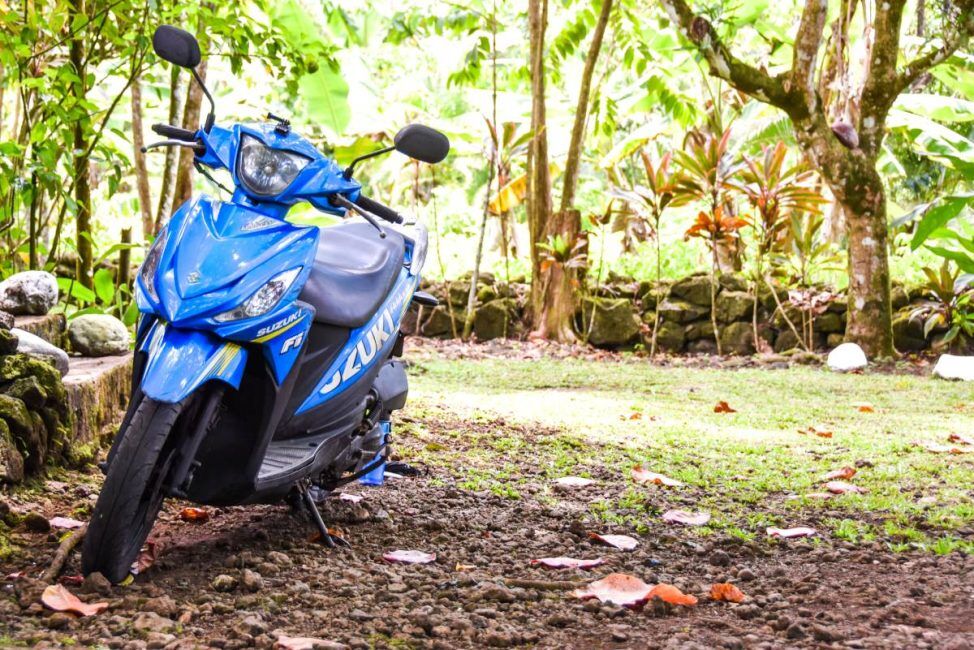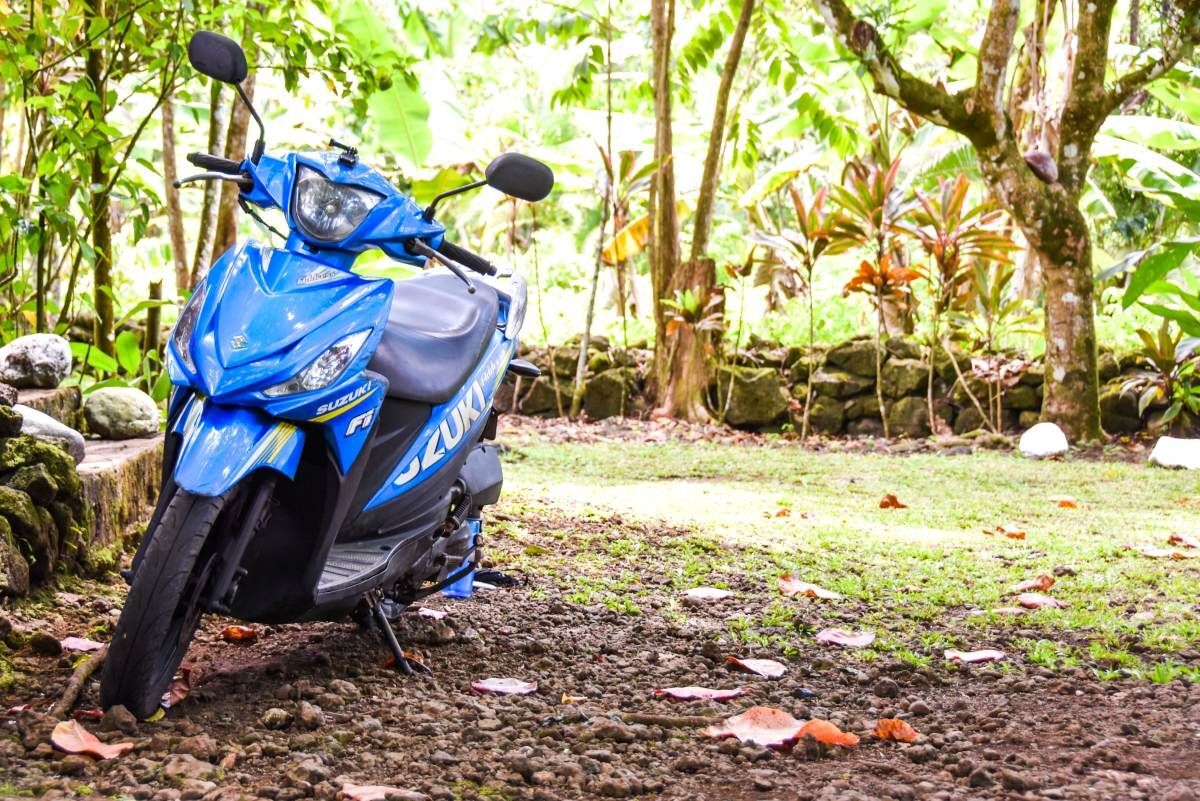How to Ride a Scooter in Tonga
Economically sound and fun to ride, scooters are a great way to get around Tonga to do some sightseeing. But if you haven’t ridden a scooter before, let alone in Tonga, then there are a few things you definitely need to know before “hitting” the road (or else our figurative phrase might turn literal). Don’t worry, we’ve come up with some essential tips for riding a scooter in Tonga that will make you more prepared.
Where to Hire a Scooter in Tonga
Scooter rental is available in Vava’u. Find out which companies to hire from in our complete scooter guide, Scooter Hire in Tonga: Where to Rent, Cost & More. Note that you need to be at least 21 years old to rent a scooter in Tonga.
1. Research Whether You Need a Visitor’s Driving License or Not
A full valid driving license from a visitor visa-exempt country or a Visitor’s Driving License is required to legally drive in Tonga. The latter costs around TOP$40 and can be purchased from the Ministry of Infrastructure in Nuku’alofa (Tongatapu) and from the Police Station in Neiafu (Vava’u). While scooter rental companies are not likely to check whether you have the correct license, you will be fined if caught driving in Tonga without one. For more on the subject, check out Can You Drive in Tonga with an Overseas License?
2. Be Prepared to Pay a Bond
You will need to pay a bond when hiring a scooter, not only as an incentive for you to look after the vehicle but also so funds are available to the rental company in case you damage the vehicle. Different scooter rental companies accept different methods of a security deposit, the most common being cash (expect around TOP$200), while other methods could be preauthorising your credit card or holding your passport. Needless to say, these will be returned to you after you return the vehicle.
3. Take Out Your Own Insurance
Very few vehicle rental companies in Tonga have insurance policies for customers. Simply put, if you damage a vehicle, you will be charged an amount decided by the rental company. If you want to be covered, take out your own travel insurance that covers vehicles.
4. Check the State of the Helmet
You should always check the quality of a helmet and that it fits you correctly before agreeing to rent a scooter. Especially in Tonga, some scooter rental companies have been reported to have poor-quality helmets. If you doubt the safety of the equipment or vehicle provided, don’t risk renting.
5. Know the Road Rules
Between the roundabouts, giving way to vehicles turning right, and driving on the left side of the road, there are a few road rules in Tonga that might be different from what you’re used to at home. It’s always a good idea to get familiar with the rules of the road in order to keep yourself and others safe. Check out some road rules that visitors need to know in our guide, How to Drive in Tonga + 10 Road Rules to Know.
6. Avoid Driving at Night
The quality of street lighting is poor in Tonga, not to mention the lack of lighting once you get out of the urban areas. Keep yourself safe by avoiding driving your rental scooter at night.
7. Don’t Ride a Scooter in Tonga if You’re Afraid of Dogs
Driving in Tonga comes with the risk of dogs chasing after you; which is understandably much scarier on a scooter than it is in an enclosed vehicle. If you seize up at even the thought of this happening to you and you think it will impair your ability to ride a scooter, then perhaps rent a car instead.
8. Be Careful Not to Burn Your Leg
A common mistake for scooter newbs is burning a leg on the hot exhaust pipe. Most rental scooters have a protective casing over the pipes now, but still, don’t go flinging your legs around after a ride, especially if you’re the pillion (back) passenger.
9. Know How the Gas Stations Work
While a full gas tank should get you all around Vava’u, note that you will need to fill up your gas tank before returning it. The great thing about scooters is that they are much cheaper to fill than a car. Note that almost all gas stations in Tonga are full-service gas stations, so ask the attendant to fill the tank up to full and pay at the counter.
10. Watch Out for Animals
As mentioned with the dogs, there are quite a few hazards on the roads of Tonga that you have to be extra careful of when riding a scooter. One of them (or many of them, should we say?) is animals. Pigs, horses, dogs and chickens are often on the roads. Just take your time when riding your scooter anywhere in Tonga – sticking to the speed limit helps – and you should have enough time to react when you approach a new friend on the road. For more tips like this, check out the 10 Safety Tips for Driving in Tonga.
Finally, First Time Riding a Scooter? Do a Test Ride
When hiring a scooter for the first time, have a few practice laps of the car park getting comfortable stopping, accelerating and controlling the bike before hitting the road.
You might also want to ask your scooter rental company to show you how to start the engine, depending on the model you have (usually, it’s just a key-in-and-twist sort of job). They should also show you how to refuel your scooter – if they don’t, just ask if you’re unsure!
For more tips on how to ride a scooter, head over to Scooter Hire in Tonga: Where to Rent, Cost & More.
More Tips for Riding a Scooter in Tonga
That’s it for our tips on riding a scooter in Tonga. For more on the subject, take a look at our insightful guides:
- Scooter Hire in Tonga: Where to Rent, Cost & More
- Where to Rent a Motorbike in Tonga
- The Driving Times in Tonga You Need to Know
Finally, be sure to bookmark our Tonga Transport Guide: 10 Ways to Get Around Tonga for even more transport tips.
Author
Laura (Lola) S.
This article was reviewed and published by Laura, editor in chief and co-founder of Tonga Pocket Guide. Since arriving solo in the South Pacific over 10 years ago with nothing but a backpack and a background in journalism, her mission has been to show the world how easy (and awesome) it is to explore a paradise such as Tonga. She knows the islands inside-out and loves sharing tips on how best to experience Tonga’s must-dos and hidden gems. Laura is also editor of several other South Pacific travel guides.


